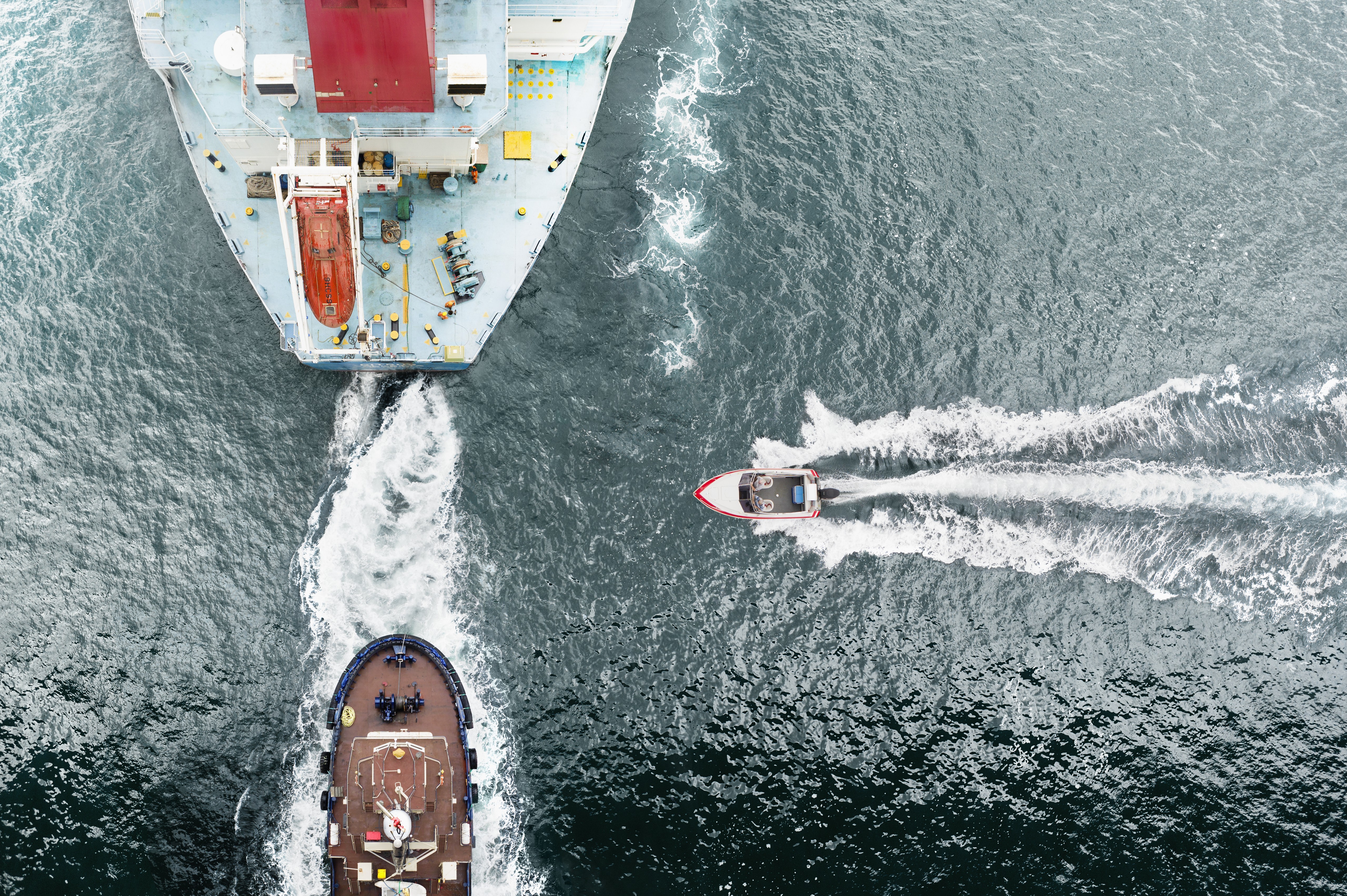Water World: Ports, Power and Position in the Horn of Africa
Global players, including the US and China, are acutely aware that there may be a pending change in the power dynamics of the Horn of Africa. While the political posturing of regional players like Egypt, Sudan and Ethiopia is well known, it is increasingly clear that this power play is steeped in securing control of the region’s strategic waters. Djibouti continues to punch above its weight as a key trade and security hub, but with interest piquing in Somaliland, a new competition over strategic ports is emerging. Yet, it is not just maritime opportunities up for grab. Beyond the Bab al Mandab Strait, the freshwaters of the Nile are also in the mix. The Grand Ethiopian Renaissance Dam (GERD) project is due to be completed later this year, which will produce over 6,000 megawatts of electricity when it comes online. The dam will make Ethiopia a major powerhouse, allowing it to export electricity across the region, but this will come at the expense of more cordial diplomatic ties with Egypt. While regional and global powers, including the US, China, the United Arab Emirates, Turkey and others, will be eager to back the winning horse in the latest power race in the Horn of Africa, they cannot rely on their enemy’s enemies being their friend. Cross-border hostilities may come to overshadow old regional alliances as the Horn of Africa’s states set their own power agendas.

Fighting over the Nile
The GERD is due for completion in 2018. The USD 5 billion project will take between five and 15 years to fill, in a process Egypt is certain will jeopardise its primary water supplies. Ethiopia is expected to start filling the dam as early as July 2018 and the issue has already become a focal point in deteriorating relations between Egypt, Ethiopia and the third party to the project, Sudan. The Blue Nile in Ethiopia transcends Sudan before joining the White Nile and entering Egypt, and supplies 85 percent of Egypt’s water, inherently linking the three countries and their water supplies. Yet, since Ethiopia laid down the cornerstones for the GERD in 2011, the three states have been at loggerheads over securing equitable utilisation of the dam. Talks aimed at resolving the issue have collapsed several times and in an apparent effort to put pressure on Ethiopia’s ally, Sudan, and in ensuing retaliation against Egypt, the two countries have since renewed their own historical diplomatic spats.
It is thus unsurprising that the protracted dispute between Egypt and Sudan over the Halayeb Triangle has again come to the fore. Recent political posturing has not only seen the temporary withdrawal of the countries’ respective ambassadors, but also the co-opting of other regional countries. Sudan has accused Egypt of deploying troops along the Eritrea/Sudan border and responded by deploying troops on its side of the border. This strategic move is likely to exacerbate historical grievances between Eritrea and Ethiopia, amid Egypt’s ongoing claims that Ethiopia and Sudan have joined forces against Egypt in the GERD dispute. Meanwhile, Sudan has accused Egypt of supporting rebels with military equipment in its own Darfur region, where Sudan has been waging a protracted war against rebel groups. Rumours of an Egyptian military base in Eritrea, as well as alleged Egyptian support for Ethiopian rebels, point to an increasingly tense region. On the other hand, Egypt accuses Sudan of supporting the now-banned Muslim Brotherhood in undermining the current regime. This has raised some hesitation among foreign investors amid concerns over an increased likelihood of regional war, specifically regarding the GERD’s attractiveness for investors in Ethiopia’s agricultural sector. Meanwhile, should tensions between Egypt and Ethiopia intensify, they could jeopardise prospects for the 60 or more Egyptian companies present in Ethiopia and their accumulative USD 150 million investments in the country.
Rumours of an Egyptian military base in Eritrea, as well as alleged Egyptian support for Ethiopian rebels, point to an increasingly tense region.
Proxy battles and new military positions
The region is fast becoming a proxy stage for the wider Gulf diplomatic crisis, between the Saudi Arabia-led Gulf Cooperation Council (GCC) bloc, which includes Egypt, on one side, and Qatar on the other. Despite claiming neutrality, Sudan appears to be cosying up to Qatar’s ally, Turkey. President Omar Al Bashir has sought to grow ties with his Turkish counterpart, President Recep Tayyip Erdoğan, who is on a sustained soft power drive utilising Turkish public and private investment right across the continent. Turkey and Sudan reached a lease agreement for Sudan’s Suakin Red Sea Island last year. The deal over Suakin has raised concerns in the region that Turkey will seek to establish a military presence on the island, which will tip the balance of military powers in the Horn, particularly with regard to Djibouti.
Djibouti is strategically located along the shipping lines of the Gulf of Aden. At least 20,000 commercial ships pass through the Gulf of Aden each year and 11 percent of the world’s seaborne petroleum passes through the region en route to the Suez Canal. Djibouti also hosts French, US and, more recently Chinese, foreign military bases.
The US and France have an entrenched security interest in the country, with Djibouti serving as the base for US and French regional counterinsurgency operations, including into Somalia and Yemen. Yet, China’s soft power initiatives have put the country far in the lead in the battle over Djibouti through high capital investments, which the more established global powers have not matched. China has invested billions of US dollars into Djiboutian infrastructure, including the Doraleh Container Port, which Djibouti’s landlocked neighbour, Ethiopia, is dependent on for at least 95 percent of its foreign trade. Djibouti is also expected to feature prominently in China’s One Belt, One Road initiative and there is widespread speculation that a Chinese company is in the running to take over Doraleh from the Dubai-based DP World. DP World had previously secured a 30-year concession to operate the port in 2006, but in an unexpected move on 23 February, Djibouti President Ismaïl Guelleh dissolved the contract by presidential decree, alleging that it had been obtained fraudulently. This is a confident move on the part of Djibouti, ultimately rebuking the world’s fourth largest ports operator and potentially tainting ties with the United Arab Emirates (UAE), in favour of far more lucrative ties with Beijing.
Introducing Somaliland
Although DP World will push back against the decision, the UAE is already looking beyond its borders. In 2017, DP World committed USD 442 million to develop Somaliland’s Berbera Port amid wider UAE plans to establish a military base in the self-declared independent territory. The move on the part of the Dubai-based company and the UAE will significantly increase the strategic importance of Somaliland. In return for the base, the UAE will build a new civilian airport for Berbera and rehabilitate the road linking the city to the Ethiopian border at Wajaale. Meanwhile, on 6 March, reports emerged that Ethiopia has purchased a 19 percent stake in DP World’s Berbera project in a likely effort to reduce Ethiopia’s reliance on Djibouti. If successful in linking Somaliland and Ethiopia, the development will reduce Djibouti’s regional bearing, provided that Ethiopia feels Somaliland’s development will not overshadow its own.
The move on the part of the Dubai-based company and the UAE will significantly increase the strategic importance of Somaliland.
Regional vs Domestic Tradeoffs
Some powers, notably China, the UAE and even Turkey, are gaining advantage over their rivals in securing influence in the region. However, Djibouti’s push back against DP World and Ethiopia’s entry into Berbera demonstrate that the region’s own states still have a forceful role to play. Yet, it remains unclear whether the Horn countries will successfully navigate lucrative trade and security deals while avoiding the consequent political tensions, likely diplomatic skirmishes and increasingly critical domestic populations. Egypt, which has been shaken by a series of political setbacks since 2011, has struggled to revive its long ailing economy and attract much needed foreign direct investment. A huge budget deficit, external debt sitting at USD 80 billion, and budget constraints, all restrict Egypt’s appetite for aggressive cross-border ventures. However, further Saudi investment is due to stream in, in support of the Kingdom’s strategic and political ally. In October 2017, the US lifted a long-standing sanctions regime against Sudan and the country is eager to attract new FDI. Already increased protests against the Sudanese government over increased austerity measures and subsidy cuts could jeopardise these prospects and as such Sudan should be wary of the effect of aggressive actions in discouraging new investors. In Ethiopia, current political uncertainty in the wake of the 15 February 2018 resignation of former Prime Minister, Hailemariam Desalegn, and the implementation of a second state of emergency in under two years, will also increase hesitation among investors. Djibouti is facing growing international criticism over President Guelleh’s increasingly authoritarian rule while Somaliland remains unrecognised as a sovereign state, both of which could affect the legitimacy of commercial contracts with these governments. These challenges will amplify the consequences of overly aggressive security deals, at the expense of much needed trade.
Ultimately, the Horn of Africa will be one to watch in 2018. While global powers are eager to secure influence in the strategic region, countries in the Horn will likely weigh up their available options carefully. This will make the investment environment in up and coming players like Ethiopia, Djibouti and Sudan, increasingly complex. Yet, with governments needing to make trade-offs to manage domestic critics and placate regional hostilities to avoid discouraging investors, this is also a time of new commercial opportunities in the region, provided businesses stay one step ahead of regional posturing.
